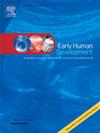使用q -方法学授权父母在新生儿决策中:开发坏死性小肠结肠炎的决策指导框架
IF 2
3区 医学
Q2 OBSTETRICS & GYNECOLOGY
引用次数: 0
摘要
背景/目的外科坏死性小肠结肠炎(NEC)的围手术期死亡率和术后发病率很高,父母面临着一个非常困难和情绪化的决定。他们必须与医疗保健专业人员一起权衡,进行手术是否符合婴儿的最佳利益,或者姑息治疗是否更合适。本研究的目的是探讨父母如何做出这种复杂的决定,并调查q方法是否可以作为赋予父母权力的决策指导框架。方法通过分析家长如何对24项与决策相关的陈述进行排序,我们旨在识别不同的决策特征。这些说明以以前确定的有影响的决策因素为基础,并补充了反映更广泛的复杂决策方法的项目。通过个人因素分析,我们发现了参与者之间的共同观点。结果共有53名健康儿童和患病儿童的家长参与了调查,其中42名家长可分为5种不同的家长类型。这些档案显示了不同程度的情感介入,对医生指导的依赖,以及对长期后果的考虑。结论:我们的研究结果表明,q方法可以揭示父母如何处理关键医疗决策的有意义的模式。这些见解可以为制定适合父母需要的决策指导框架提供信息。这个框架可以增进理解,促进共同决策,并改善家长和医疗保健专业人员之间的沟通。进一步的研究应侧重于完善和验证框架,以确保它有效地支持家庭进行高风险的新生儿护理。本文章由计算机程序翻译,如有差异,请以英文原文为准。
Empowering parents in neonatal decision making using Q-methodology: Development of a decision guidance framework for necrotizing enterocolitis
Background/objectives
Given the high risk of peri-operative mortality and postoperative morbidities in surgical necrotizing enterocolitis (NEC), parents are faced with an extraordinarily difficult and emotionally charged decision. Together with healthcare professionals they must weigh whether pursuing surgery is in the infant's best interest or if palliative care would be more appropriate. The purpose of this study is to explore how parents make this complex decision and to investigate whether Q-methodology could serve as a decision guidance framework for the empowerment of parents.
Methods
We aimed to identify distinct decision-making profiles by analyzing how parents ranked 24 statements relevant to the decision. These statements were based on previously identified influential decision factors and supplemented with items reflecting broader approaches to complex decision-making. Through a by-person factor analysis, we uncovered shared perspectives among participants.
Results
A total of 53 parents of both healthy and affected children participated, 42 of whom could be categorized into one of five distinct parent profiles. These profiles show varying degrees of emotional involvement, reliance on physician guidance, and consideration of long-term consequences.
Conclusion
Our findings suggest that Q-methodology can reveal meaningful patterns in how parents approach critical medical decisions. These insights could inform the development of a decision guidance framework tailored to parental needs. This framework could enhance understanding, promote shared decision making, and improve communication between parents and healthcare professionals. Further research should focus on refining and validating the framework to ensure it effectively supports families navigating high-stakes neonatal care.
求助全文
通过发布文献求助,成功后即可免费获取论文全文。
去求助
来源期刊

Early human development
医学-妇产科学
CiteScore
4.40
自引率
4.00%
发文量
100
审稿时长
46 days
期刊介绍:
Established as an authoritative, highly cited voice on early human development, Early Human Development provides a unique opportunity for researchers and clinicians to bridge the communication gap between disciplines. Creating a forum for the productive exchange of ideas concerning early human growth and development, the journal publishes original research and clinical papers with particular emphasis on the continuum between fetal life and the perinatal period; aspects of postnatal growth influenced by early events; and the safeguarding of the quality of human survival.
The first comprehensive and interdisciplinary journal in this area of growing importance, Early Human Development offers pertinent contributions to the following subject areas:
Fetology; perinatology; pediatrics; growth and development; obstetrics; reproduction and fertility; epidemiology; behavioural sciences; nutrition and metabolism; teratology; neurology; brain biology; developmental psychology and screening.
 求助内容:
求助内容: 应助结果提醒方式:
应助结果提醒方式:


